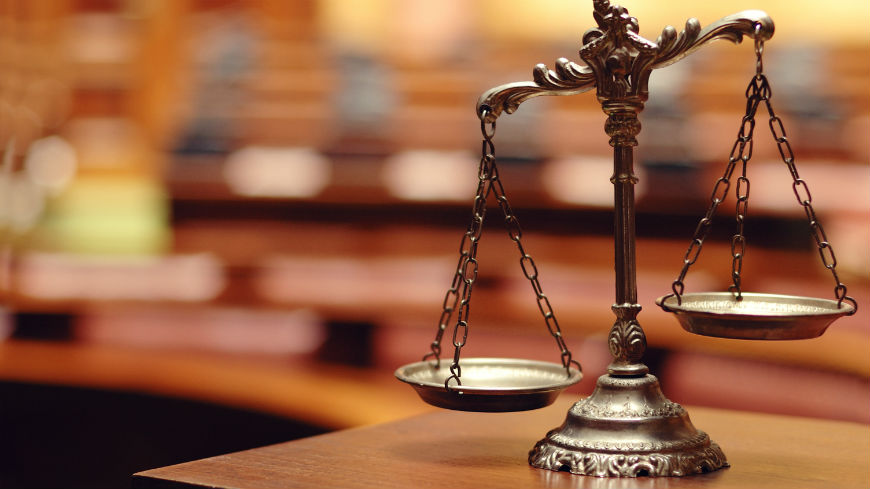
In this essay, we will explore the essential connection between the rule of law and human rights in a democracy, examining their significance, interdependence, and challenges. A thriving democracy is built upon two fundamental pillars: the rule of law and human rights.
The harmonious interplay of these principles is vital in ensuring a just and equitable society. Rule of law establishes a framework that upholds justice and equality for all citizens, while human rights protect and promote the dignity and freedom of individuals.
The rule of law is a principle that implies that all individuals, institutions, and governments are subject to and accountable to the law. It establishes a system where laws are consistently applied, and no one is above the law. This principle is the foundation of a well-functioning democracy, as it ensures that the exercise of power is limited and fair, preventing arbitrary decisions or abuse of authority.
In a democratic society, the rule of law serves multiple crucial functions. Firstly, it provides legal protection for citizens, safeguarding their rights and liberties. Secondly, it creates a predictable environment, allowing individuals and businesses to plan their actions with confidence. Thirdly, it fosters public trust in the institutions of governance, reinforcing the legitimacy of the government’s actions.
Human rights encompass the inalienable entitlements and freedoms that every individual is entitled to, regardless of their background, race, religion, or status. These rights include civil and political rights, such as freedom of speech, assembly, and the right to vote, as well as economic, social, and cultural rights, such as the right to education, healthcare, and a standard of living adequate for one’s well-being.
In a democracy, human rights are the backbone of a just and inclusive society. They protect citizens from discrimination and oppression, empowering them to actively participate in the democratic process and hold their governments accountable. The recognition and protection of human rights contribute to the development of a vibrant and diverse civil society, where individuals can freely express their opinions, challenge policies, and advocate for positive change.
The concept of human rights is based on the belief that every individual possesses inherent dignity and should be treated with respect and equality. Human rights are enshrined in various international and regional treaties, declarations, and agreements, which together form the international human rights framework. The most significant and widely recognized document is the Universal Declaration of Human Rights (UDHR), adopted by the United Nations General Assembly in 1948.
The UDHR outlines a broad range of human rights, including civil and political rights (such as the right to life, liberty, and security of person, freedom of expression, and the right to participate in government) as well as economic, social, and cultural rights (such as the right to education, health, and an adequate standard of living).
In addition to the UDHR, there are other international treaties and conventions that focus on specific areas of human rights, such as the International Covenant on Civil and Political Rights (ICCPR) and the International Covenant on Economic, Social and Cultural Rights (ICESCR). Regional human rights treaties also exist, like the European Convention on Human Rights (ECHR) and the American Convention on Human Rights (ACHR).
The promotion and protection of human rights are the responsibilities of governments and international bodies. Human rights violations can occur in various forms, such as discrimination, torture, slavery, arbitrary detention, and more. Human rights advocates and organizations work to raise awareness, document violations, and pressure governments to uphold their human rights obligations.
Rule of law and human rights are inherently intertwined in a democracy. The rule of law provides the framework within which human rights are guaranteed and protected. When the rule of law is strong, human rights are more likely to be respected, as laws and institutions are designed to uphold and enforce these rights. Conversely, without a strong rule of law, human rights may be at risk of being undermined or violated.
Moreover, human rights principles often find expression in the laws and constitutions of democratic nations. These legal frameworks enshrine fundamental rights and freedoms, ensuring their protection even during times of political change or turmoil. By adhering to the rule of law, democratic societies can prevent the erosion of human rights in the face of potential challenges to their democratic foundations.
While the rule of law and human rights are essential components of a democracy, they can face challenges in their implementation and enforcement. Some of the common challenges include:
The rule of law and human rights are integral elements of a thriving democracy. The rule of law ensures that all individuals, including those in positions of power, are accountable to the law, fostering a just and equitable society. Human rights, on the other hand, protect the dignity and freedom of individuals, empowering them to actively participate in the democratic process. It’s essential to recognize and respect human rights to ensure the dignity, well-being, and equality of all individuals, and to create a just and fair society for everyone.
Understanding the place rule of law and human rights in a democracy in very important. The successful functioning of a democracy relies on the seamless interplay between the rule of law and human rights. When upheld and respected, these principles create an environment where citizens can exercise their rights freely and engage in shaping the society they live in. However, challenges such as weak institutions and political interference require continuous vigilance and efforts to safeguard these fundamental pillars of democracy.
Only by nurturing and protecting the rule of law and human rights can we ensure that democracy truly serves the needs and aspirations of all its citizens. The Rule of Law is essential for a stable and just society, as it helps prevent abuse of power, fosters economic development, encourages investment, and upholds individual rights and freedoms. It provides a framework for resolving disputes and maintaining social order, ensuring that laws are applied consistently and fairly to all members of society.